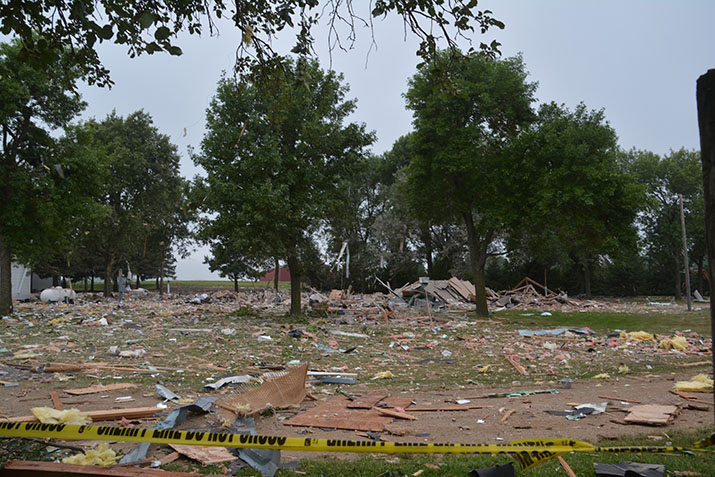Gas leaks can be deadly no matter where they happen
Oct. 18, 2021

A gas leak from a damaged liquid propane line caused the August 2020 explosion that killed two people in their Marshall, Minnesota, home. A new septic system was installed at the house the week of the explosion. The gas leak was likely from a pipe repaired during the work that had later separated.
That new mailbox or tree you planted in the yard this summer is all safe and sound, thanks to the fact that you called 811 before you dug. And now that you're likely done digging for the year—and the chances that you'll strike an underground gas line are zero—the chances of a gas leak on your property are zero too, right?
It turns out natural gas leaks can happen inside your home, too. It can happen when you get a new gas appliance, like a stove. If you do that, carefully follow all the manufacturer's instructions for installing, using and maintaining it. If you (or a pro) end up removing a gas appliance from your home, make sure the gas line is capped. It's not enough to just turn off the gas, because the valve can get bumped, causing it to leak gas into your home. There are building codes and possible permitting you need to comply with as well. And remember, anytime gas equipment in your home needs work, don't try to fix it yourself; hire a qualified technician.
Why is all this so important? Because as deadly as natural gas can be, it doesn't actually have a smell. That's why gas companies add a chemical called mercaptan to it (that's the rotten-egg odor you smell right before a burner ignites on your stove). Smelling that sulfur-like odor is a sign you may have a gas leak, as are blowing or hissing sounds – but there may not be a noise, and it's possible to get desensitized to the smell over time.
That's why it's important to have a
combustible-gas alarm. They aren't required by law, but they'll cost you about $17 to $20 at a hardware store.
When fuels like liquid propane and natural gas leak, sometimes all it takes to ignite them is a spark from your furnace or water heater igniting. That's why it's essential, when you become aware of a leak, to leave the house immediately and dial 911 only after you're safely out. A static spark from your finger could also ignite natural gas and many other gases, so don't turn off the lights on your way out, either.
So remember, even if the dangers of outdoor gas leaks are over for the year, they can occur indoors as well. Be sure to follow these prevention tips to stay safe in your gas-fueled home.

